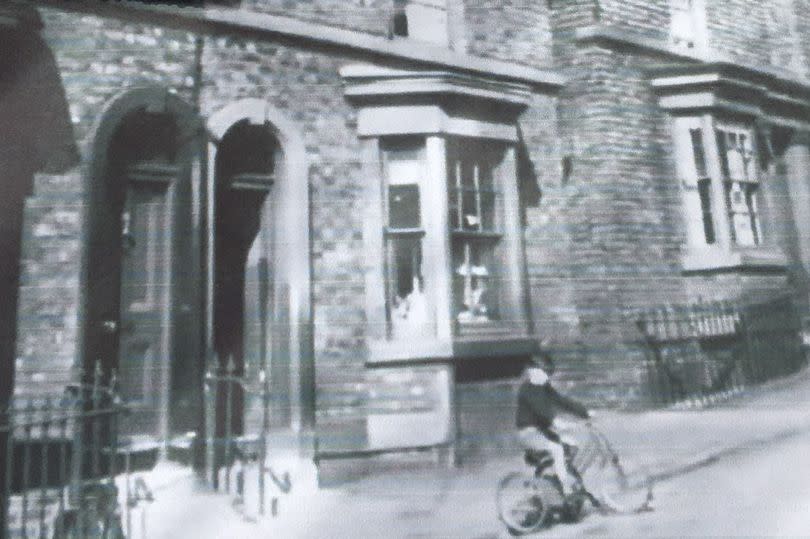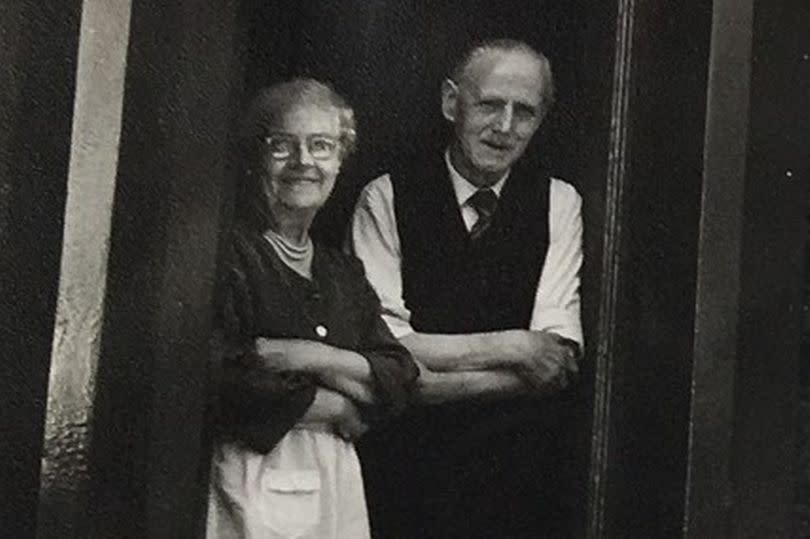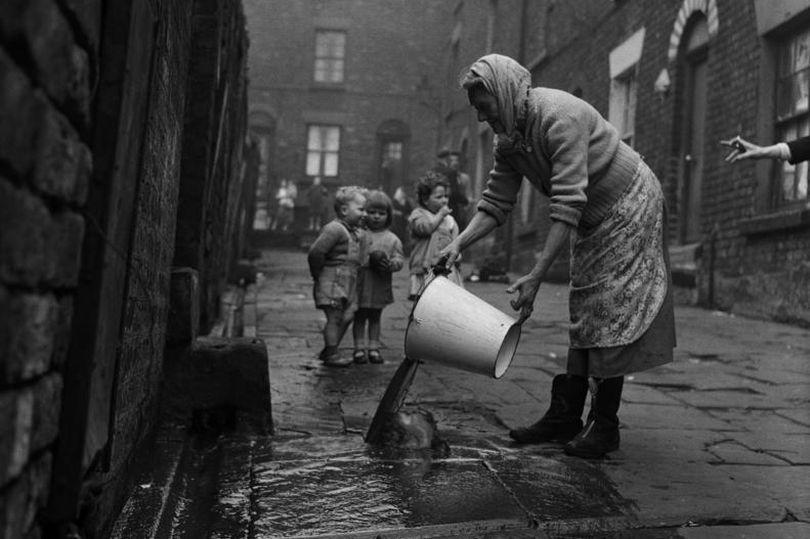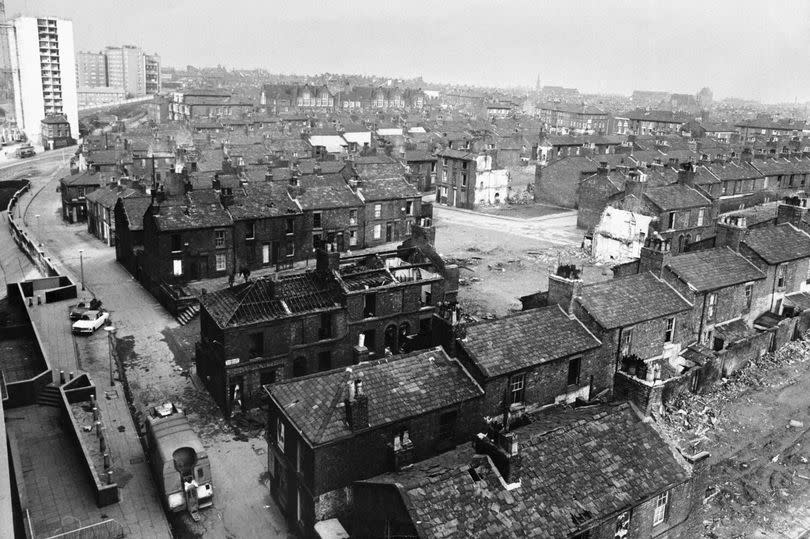Little shop inside family home were neighbours always gathered

A little shop located inside a family home in Liverpool was a "hub" were neighbours would always gather.
Before the days of supermarkets and online shopping, people across Liverpool would head to different shops to buy individual items, from butchers and fishmongers to old-fashioned sweet shops and more. But some families would also operate their businesses from home, transforming their front living rooms into little convenience shops.
Growing up around the Scotland Road area, Bob Dunn's grandparents sold everything from confectionary and shoe polish to washing up liquid and more from their front room in Anderson Street. For years, customers would open the front door and turn right into the shop, stopping through to chat and talk to neighbours and the family.
READ MORE: Untold stories from Liverpool characters and 'life on the Lane'
READ MORE: Eerie labyrinth of tunnels where 'children went missing'
As part of the Liverpool ECHO's How It Used To Be series, we spoke to Bob, 77 about his memories of his grandparents' lost shop and how life in the area has changed. He told the ECHO: "These days, shops are separate.
"But in this particular area, you found that there were one or two houses that had a bay window and that house used it as a shop. That's what my grandparents did.

"That's what people did back then - somebody would have a shop, somebody would have a chippy, somebody would have a sewing shop. This shop was in 41 Anderson Street.
"It was a general shop that used to supply the area with bread, confectionary, soap powder etc. My grandad ran the supply shop with my nan, they were Jenny and Bertie Poole.
Do you have a story for our How It Used To be series? Let us know in the comments section below.
"She was Welsh, Jenny Hughes before she married and she spoke fluent Welsh and if we were ever in trouble she shouted at us in Welsh. People would come in and talk to Bertie because he was in the medical corps in the war so he had a medical background.
"People would come in and talk to him about his military experience. Before he owned the shop, he ran a very famous pub on Great Homer Street called The Clock."
As a child, Bob would often visits his grandparents and would also help around the shop, where he said customers would also gather to chat and have cups of tea. Among the items on offer for locals to buy, Bob remembers his grandad's early "bingo machine" which saw customers pay a penny to win a prize, which was usually a bar of chocolate.

He said: "Supermarkets didn't exist. You had to go to somewhere like us or to Great Homer Street were all the shops were.
"You'd come to the front door, go into the front room where the counter was set out and they'd shout "shop." If they were busy, I'd go out and serve sweets and things like that.
"It was a bit of a hub really. People would gather there and chit-chat."
The shop was at the heart of the community for years, but it wasn't the only interesting part about the family home. Bob said: "The shop was operational during the war and in the cellar, which I loved going down to, grandad had built bunkbeds so when the sirens went off the family would go downstairs, get into the bunkbeds and wait till it was all over.
"A lot of people would choose to go to a local bomb shelter, but they decided to stay there For me as a boy, I used to go down to the cellar and grandad was very handy with tools, he used to make all sorts of things.
"But he also used to get wood and chop it up and wire it for firewood sticks. I used to help him with that and he used to sell the bundles of firewood in the shop because that's how people heated their house - there were no central heating."

Bob's grandparents ran the shop from their home for years. But by the late 1950s and early 1960s, the area and the lives of those who lived there changed forever.
Decades ago, a significant population of people in the city were living in slums and tens of thousands of residents from inner-city Liverpool later moved to start new lives on new housing estates. Families whose homes were knocked down in what became known as slum clearances relocated to areas such as Skelmersdale, Widnes, Kirkby or Cantril Farm.
As a result, whole new communities were created in one fell swoop as tenants of all ages started new lives in new areas. Many photographs have documented how much change has taken place on the streets after the demolition of the slums.
Among the residents to relocate were Jenny and Bertie Pool, who moved to Kirkby. A lot has changed in the city since Bob's childhood, something he recognised more as a grandparent now himself when he was celebrating Christmas one year with his grandchildren.

Bob said: "‘Christmas for us, we made a lot of chain link decorations. We had one Christmas tree and the arms on the Christmas tree were like green bristled brushes.
"I've since discovered they were made by the same company that made toilet brushes. We hung one of my dad's socks on the mantlepiece and in it you'd get an orange, an apple, some nuts, a two-shilling piece and a small toy like a yoyo. So I started writing it all this down."
Before he retired, Bob was a senior lecturer of childhood and early childhood studies at Edge Hill University's faculty of social and psychological science. As his notes about childhood in Liverpool and how life had changed became larger, he was inspired to turn them into a book.
Published by Austin Macauley Publishers, Childhood in the Liverpool Slums explores life for children in the city in the 1950s and 1960s and is a reminder of "how things used to be in that age of the world." Covering everything from employment to school, shops, how it all changed and more, the book is linked to the personal experiences of the author and also includes a chapter on his grandparents' well-loved shop.
Bob said: "It is set against the backdrop of the clearances and the Mersey culture of the time. To those from Liverpool it is a reminder of how things used to be in an entirely different age and world.
"To those not from the area it is a window on a unique way of life that came and went. For researchers it is a supply of rich first hand data, and hopefully for all, a good interesting read. "
Bob's book, Childhood in the Liverpool Slums, is available in multiple bookshops, such as Waterstones and Blackwell's and online via Amazon. To find out more, click here.
Receive newsletters with the latest news, sport and what's on updates from the Liverpool ECHO by signing up here

 Yahoo News
Yahoo News 
